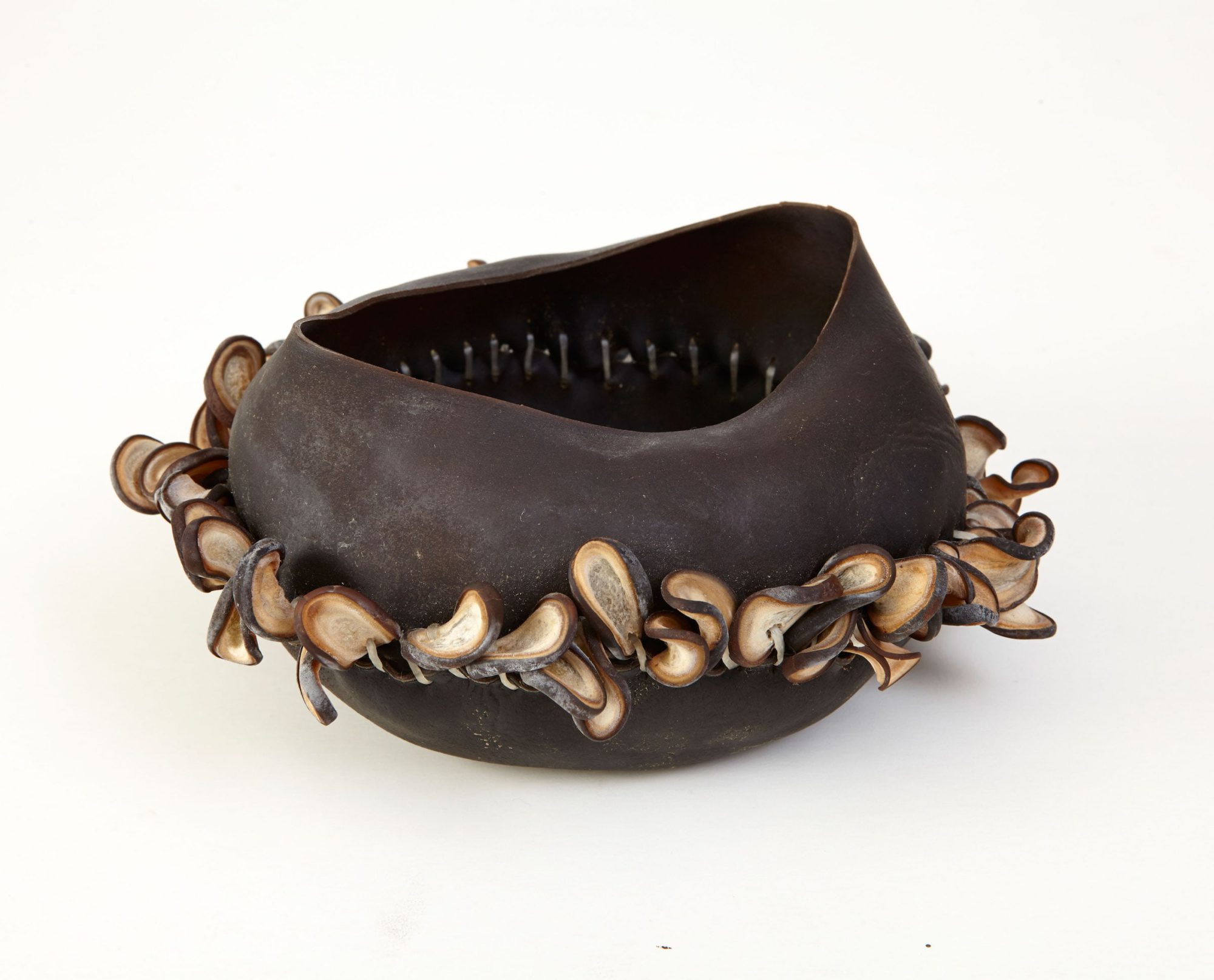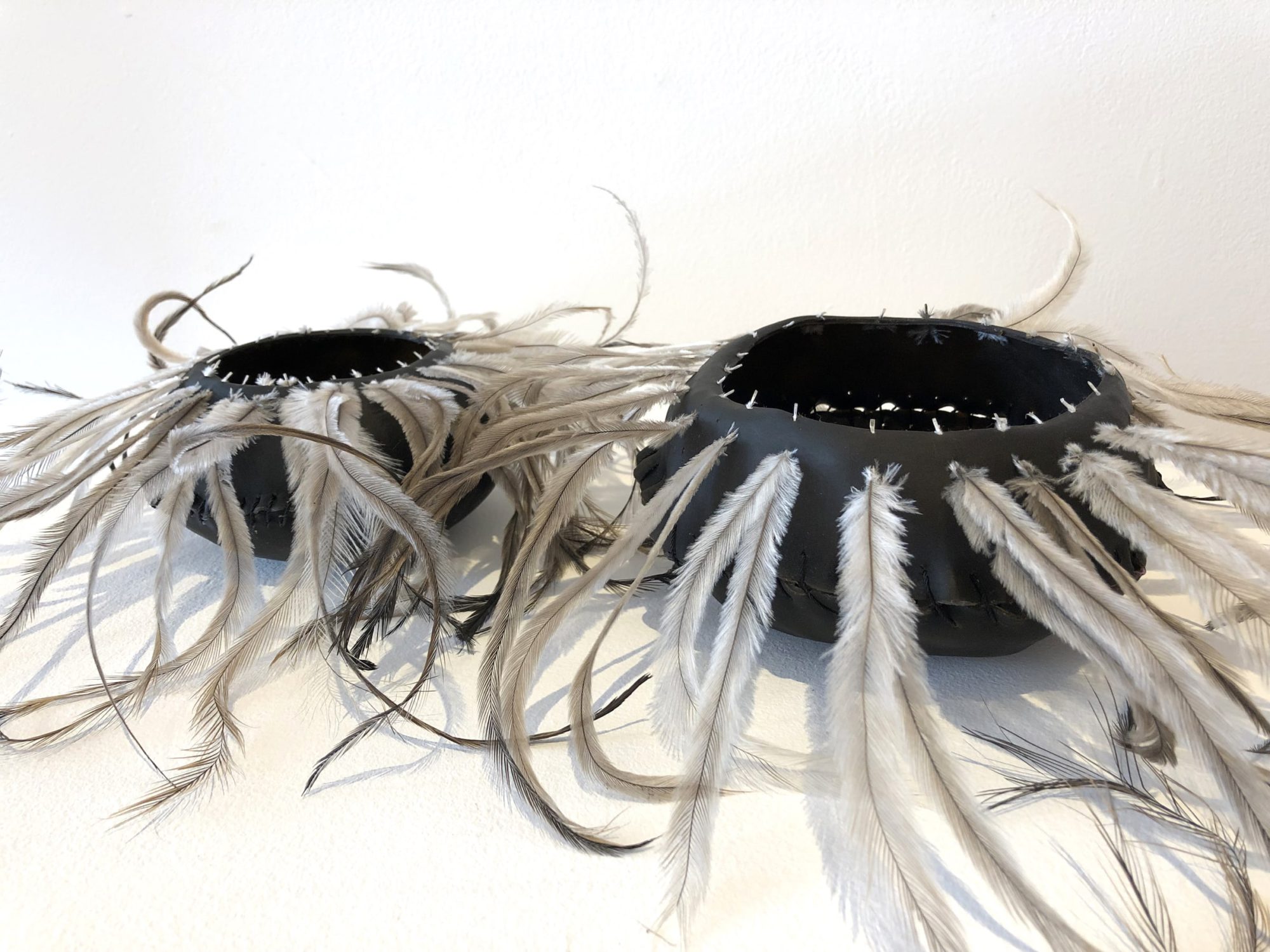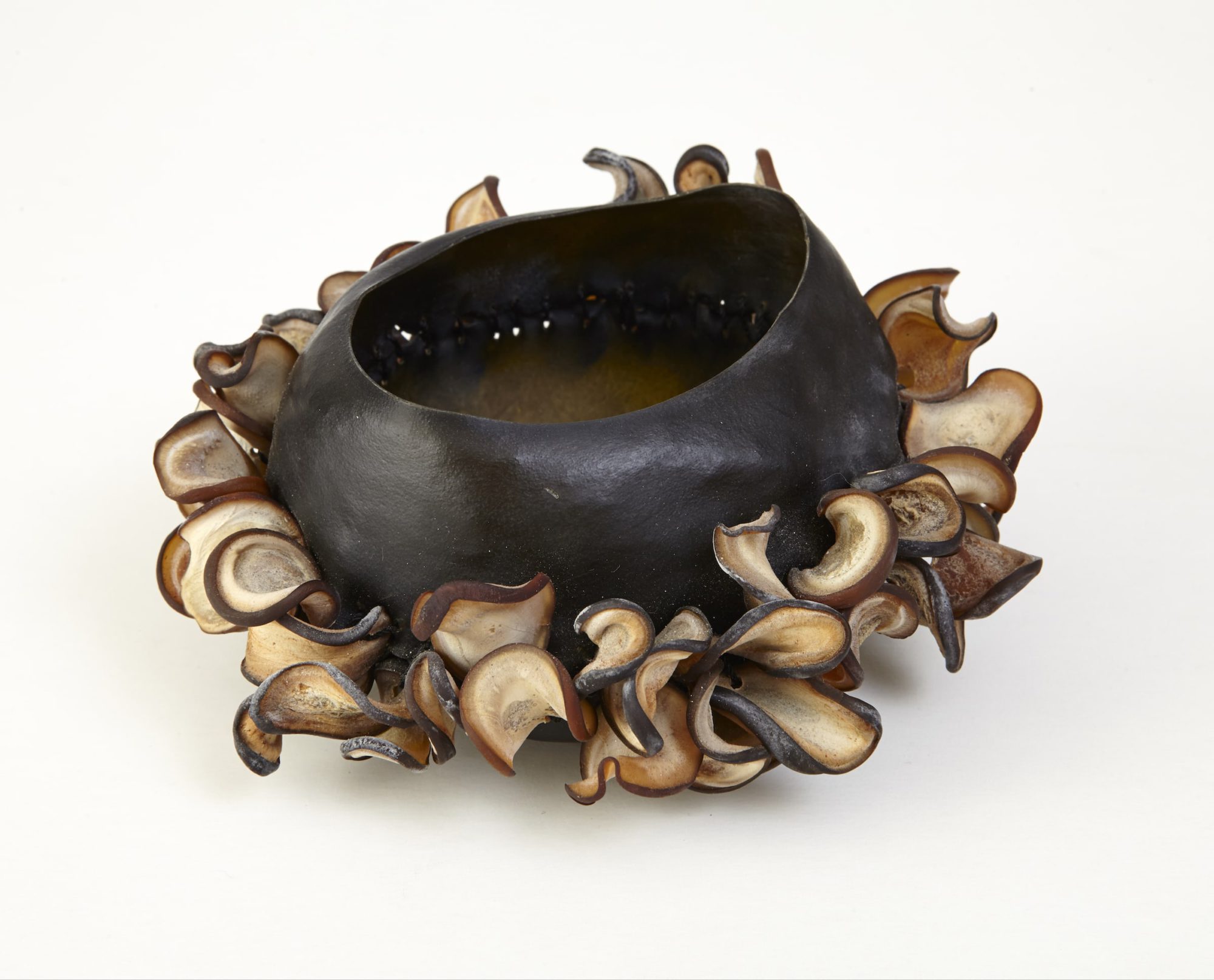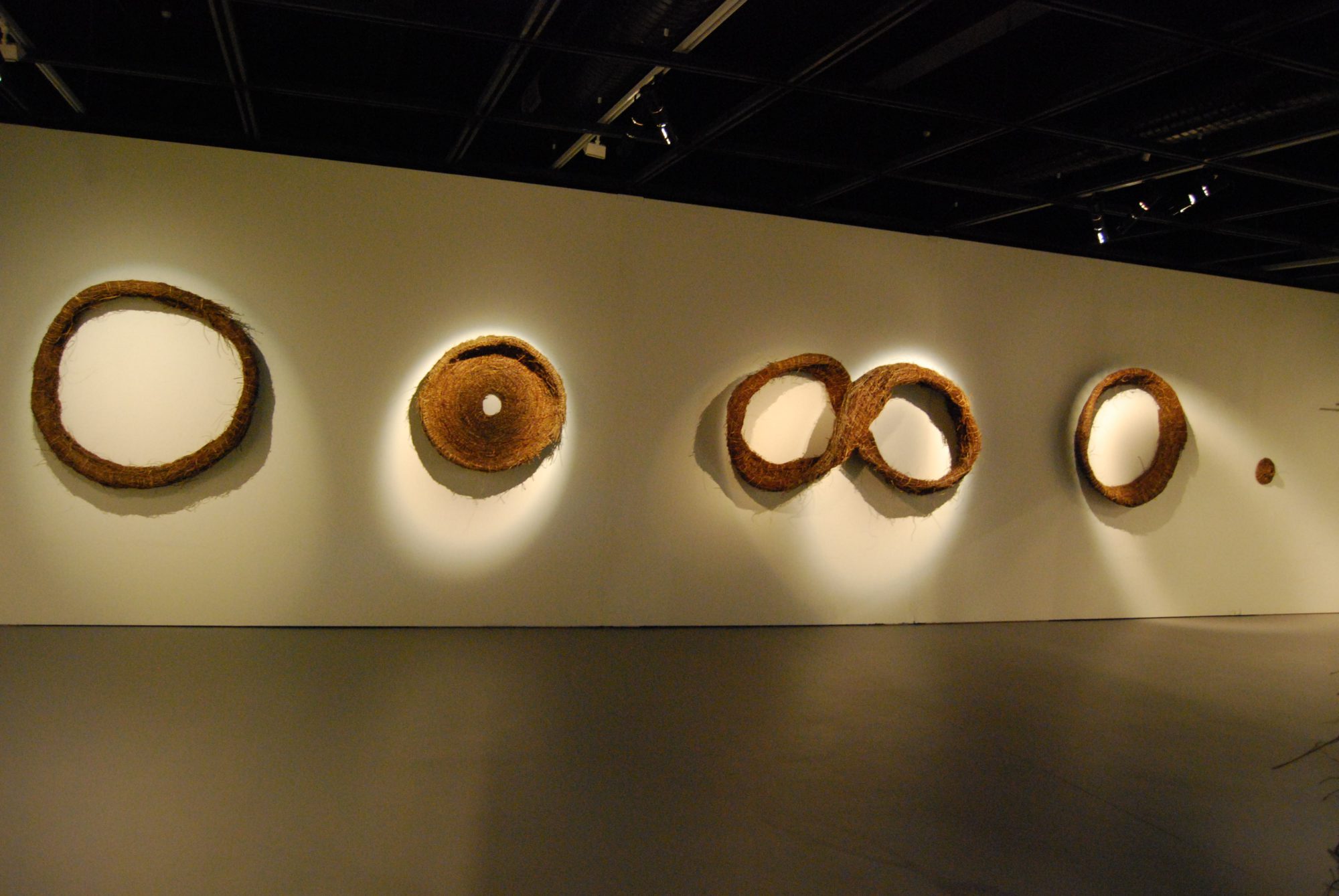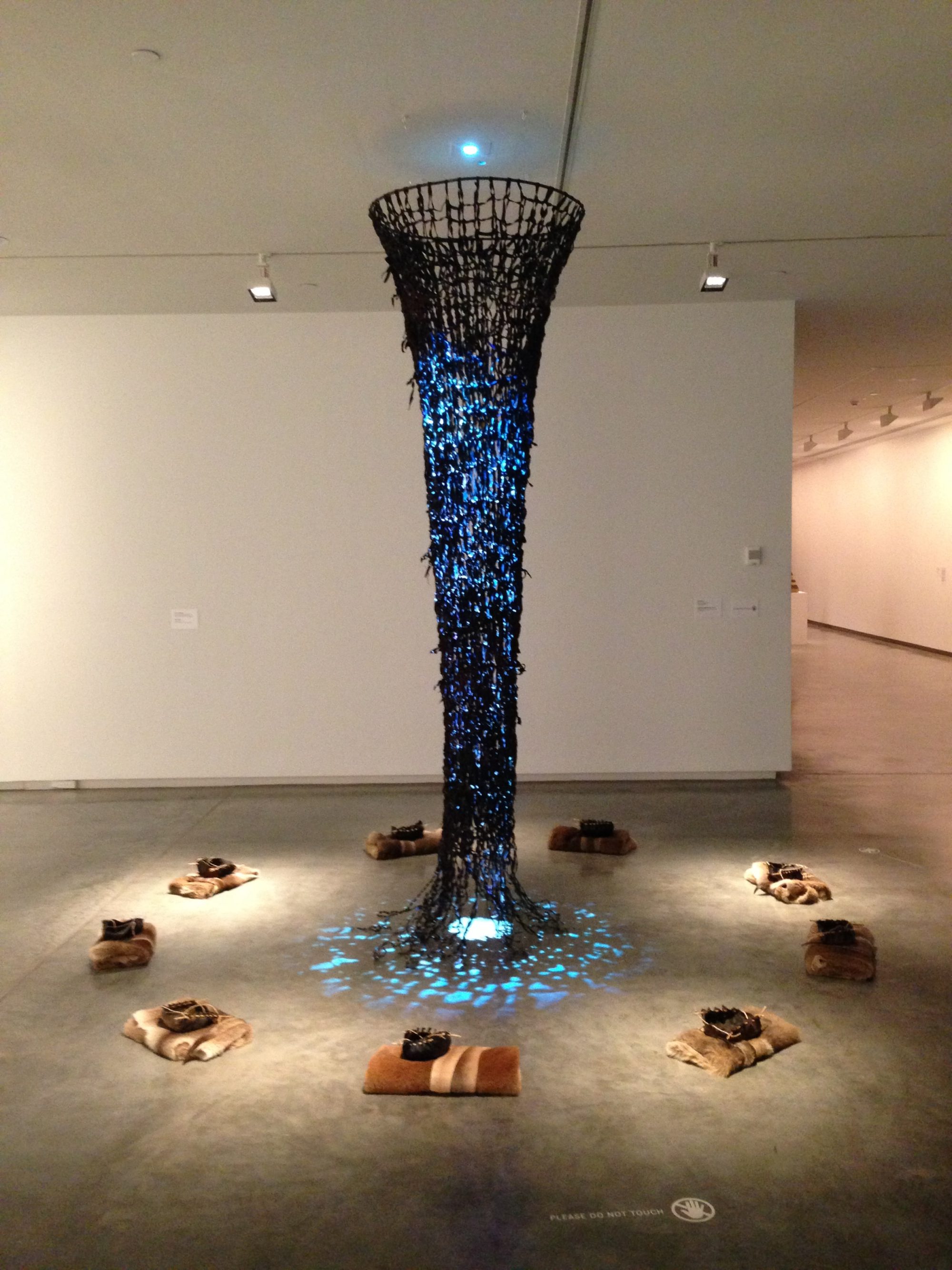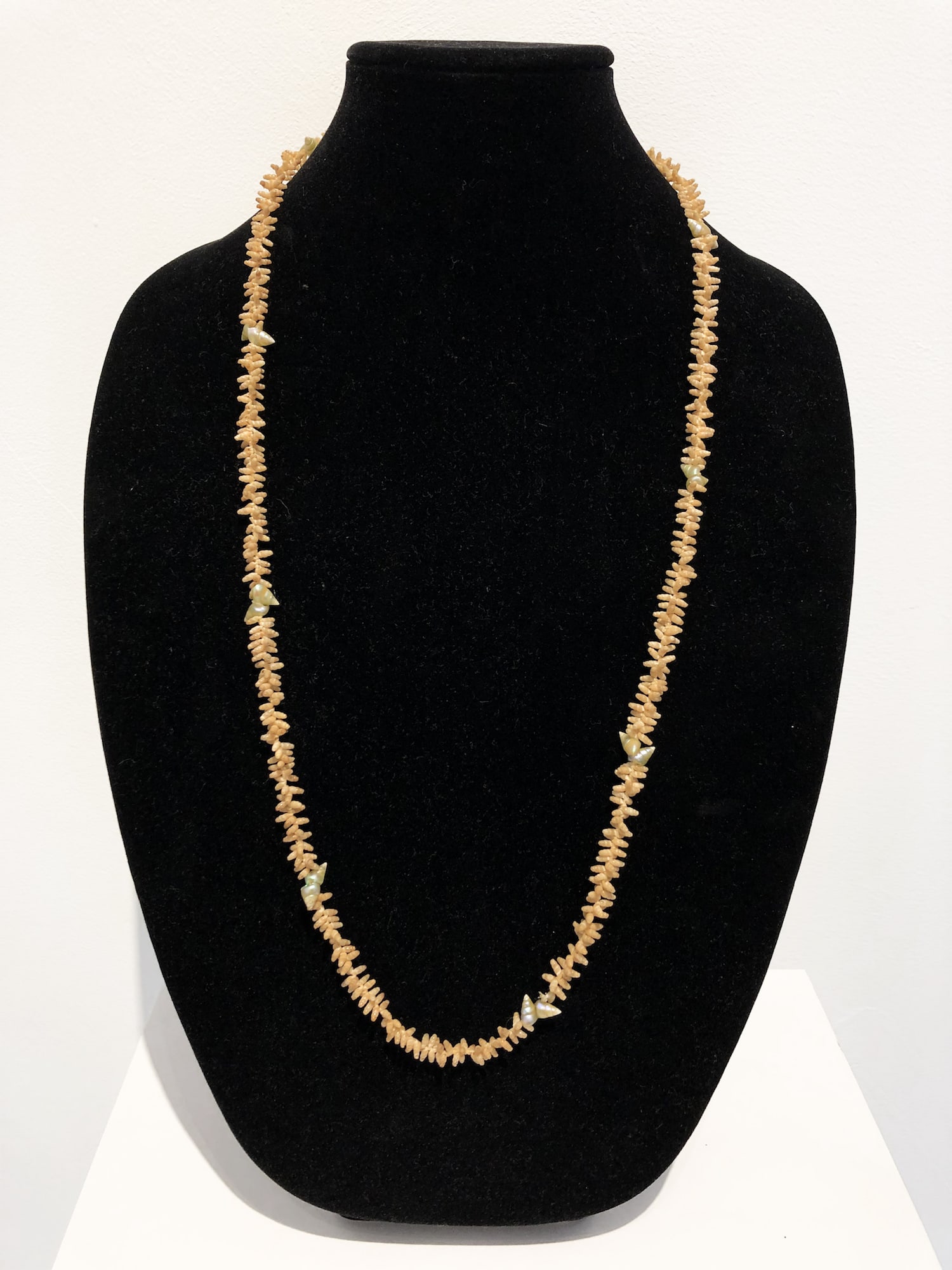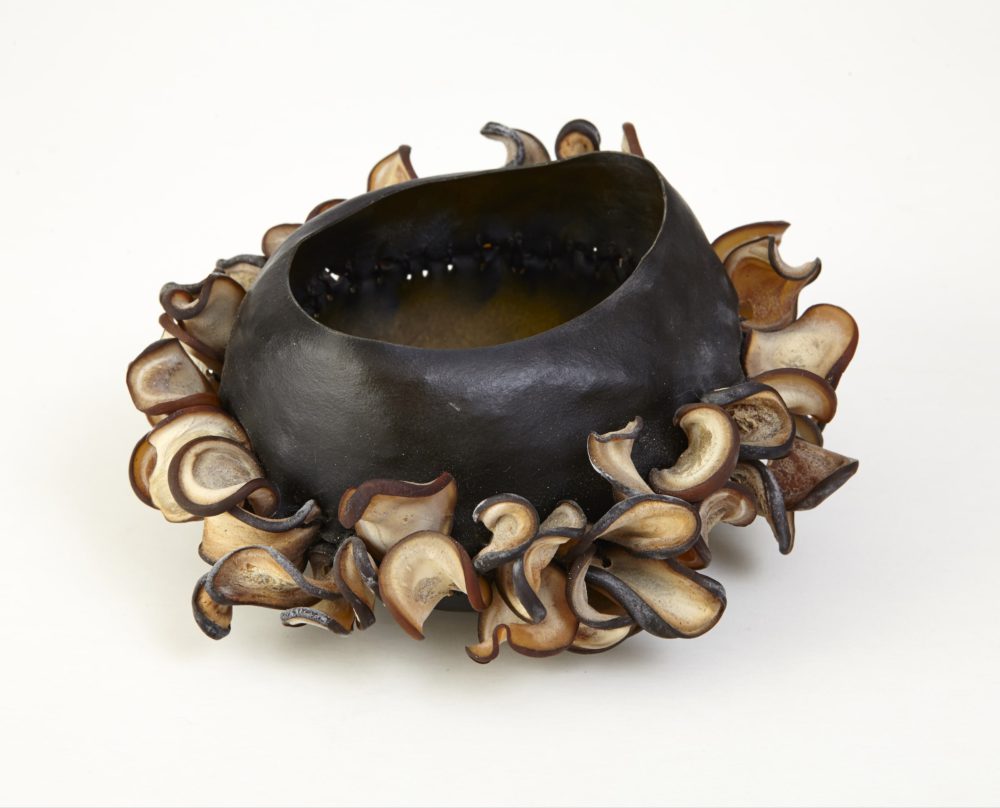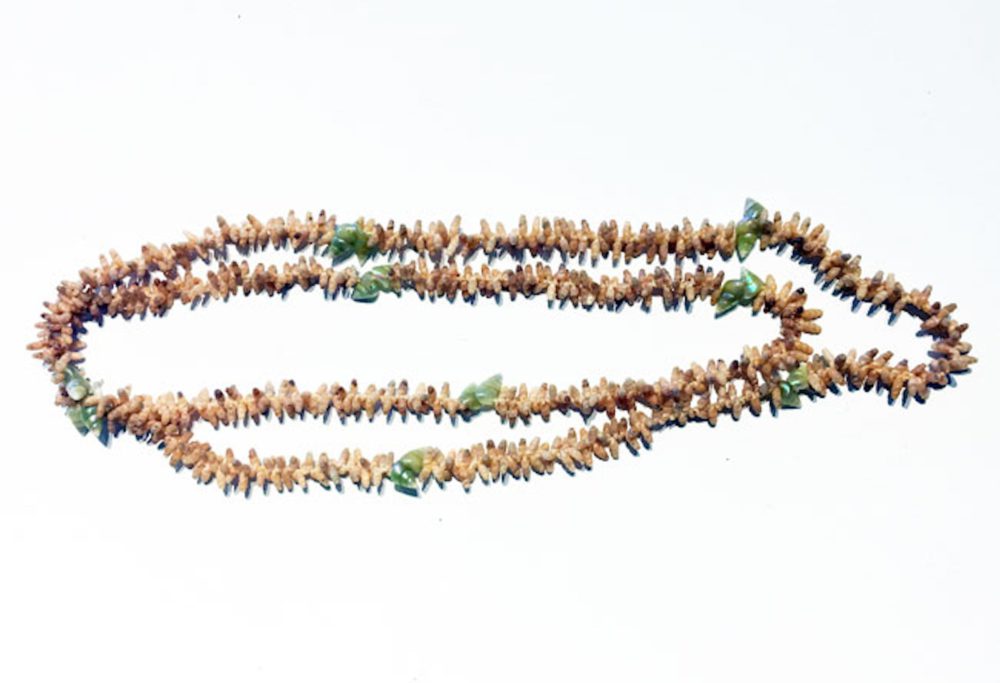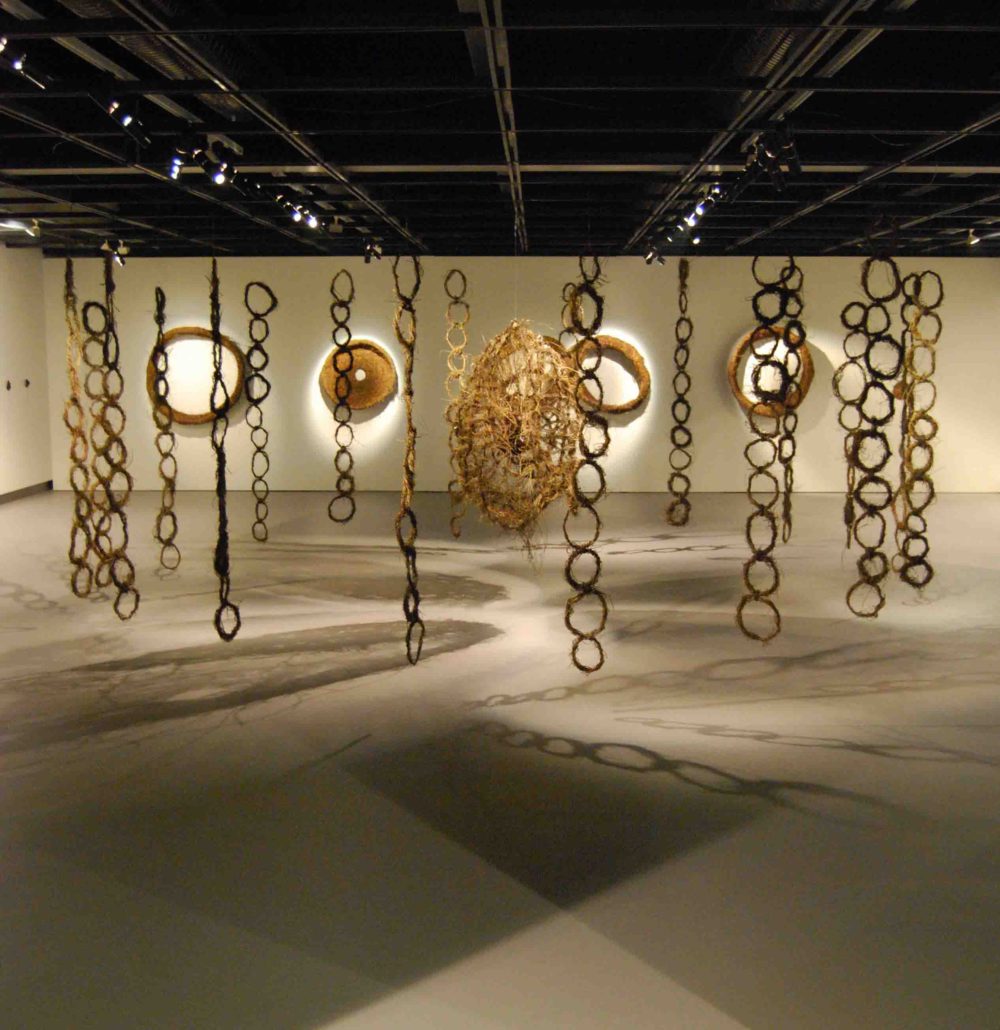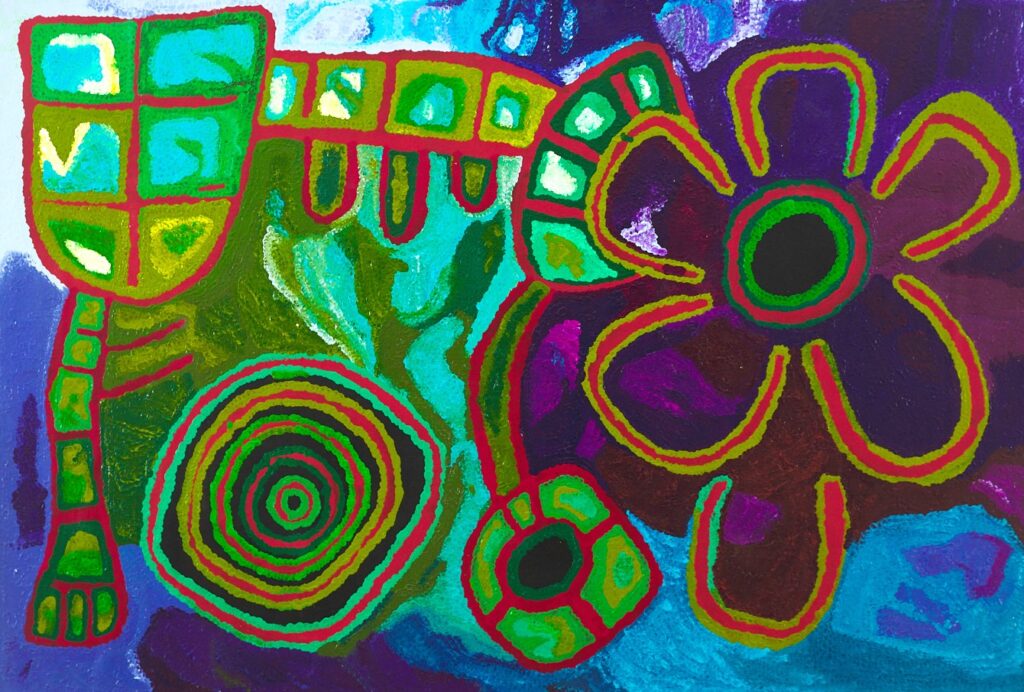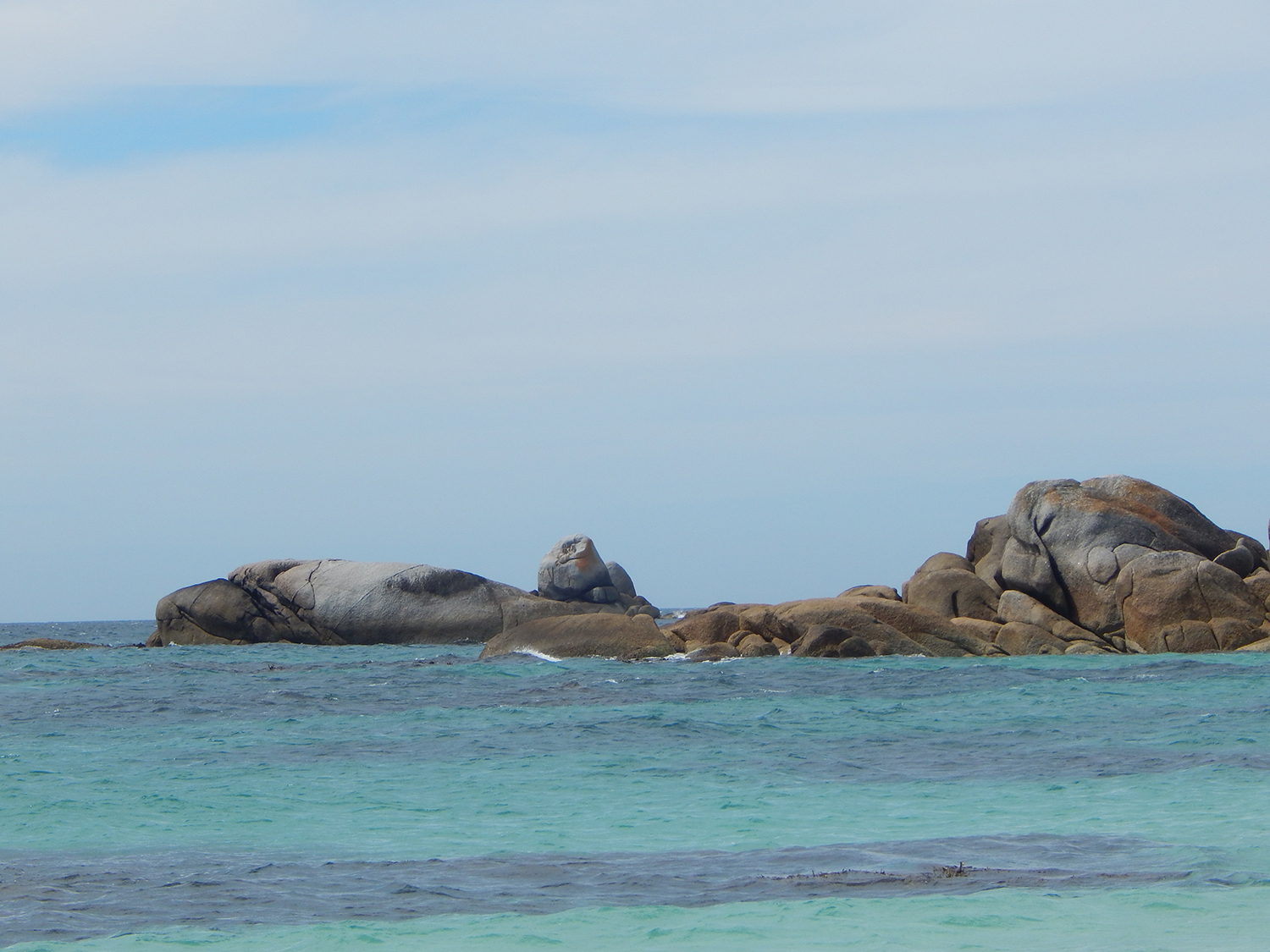
Vicki West
Over many years of working with kalikina (bull kelp, durvilaea pototorum) I have developed a deep understanding and respect of its many differing functions and properties - ecologically, environmentally and culturally.”
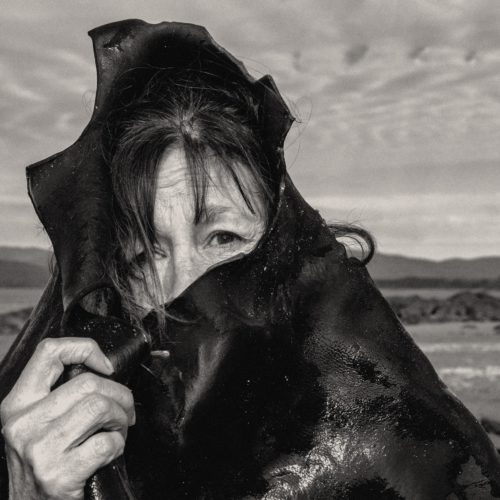
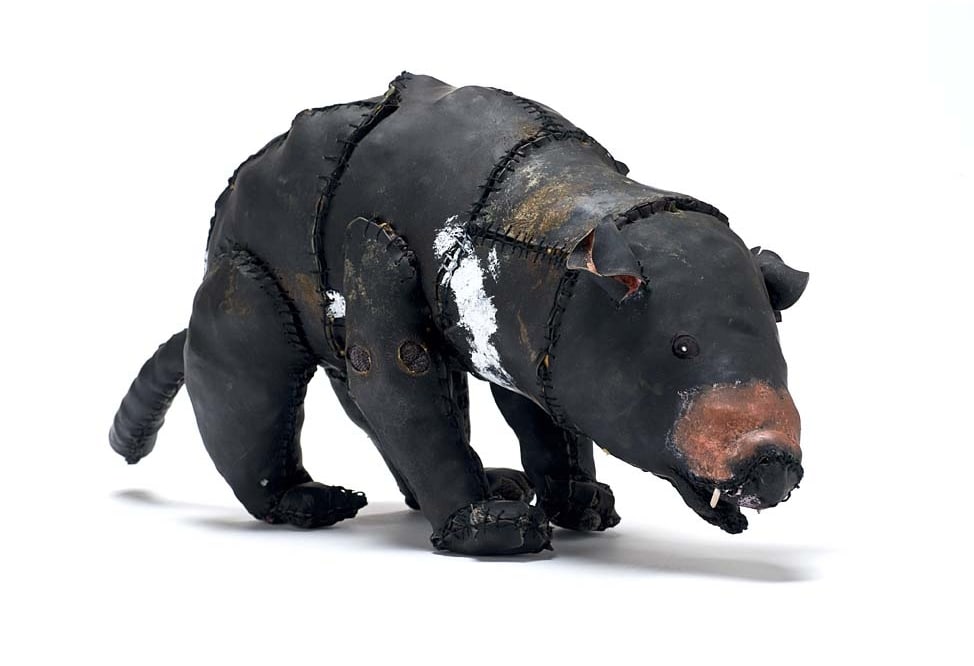
MY RELATIONSHIP WITH KALIKINA IS A CONTINUATION OF MY ANCESTOR’S TRADITIONAL CULTURAL PRACTICES OF UTILISING KALIKINA. THE OLD PEOPLE CREATED RIKAWA (WATER CARRIERS) MADE FROM THE KALIKINA – THESE VESSELS PLAYED AN ESSENTIAL ROLE IN THE SURVIVAL OF TASMANIAN ABORIGINAL PEOPLE AND CULTURE OVER THOUSANDS OF GENERATIONS.
kalikina was a food source but was utilised for making balls used for practicing spear throwing and for creating shoes. Women were also known to have wrapped themselves in it to hide from sharks when diving.
For me the kalikina is a metaphor of survival. It is a precious cultural resource whose environment is under threat due to global warming, introduced invading species and other environmental threats. The decline of kalikina brayly (kelp forests), as with milaythina brayly (land forests), is a mirror of the larger global situation which ultimately places all of our survival in question.
In my work I reflect on my connection to place and voice my fear for the future of Tasmanian land and sea scapes. It explores how, through colonisation, the way these scapes are cared for has changed significantly, how natural resources are being over exploited, and how this impacts on the environment. It references the interconnected relationship that Aboriginal people (past and present) have with the natural world and our obligation to respect and protect all things that are part of it.
I collect kalikina from my homelands in the north east of Tasmania, and while my works carry concerns for country/sea, they also celebrate the continuing cultural practices and survival of my people.
Vicki West is a Tasmanian Aboriginal artist of the trawlwoolway people from the North East coast region. She undertook a bridging course in art at riawunna Centre for Aboriginal Education in Launceston in the early 1990s, and completed her Bachelor of Fine Arts (BFA) in 1999, BFA First Class Honours in 2001 and Masters in 2008 (all University of Tasmania, School of Visual and Performing Arts).
West has maintained a strong local, national and more recently international exhibition record over the past two decades, notably in Defying Empire the 3rd National Indigenous Art Triennial at the National Gallery of Australia, Canberra, Tarnanthi, Art Gallery of South Australia in 2015, String Theory at the Museum of Contemporary Art in Sydney, Menagerie (2009), tayenebe (2009), Woven Forms (2005), Native Title Business (2002) and The One Tree Project (2001). Vicki is represented in the collections of the National Gallery of Australia, Canberra; the Art Gallery of NSW, Sydney; the Museum and Art Gallery of the Northern Territory, Darwin; the Australian National Maritime Museum, Sydney, NSW; the Queen Victoria Museum and Art Gallery, Launceston, TAS; and the Australian National Museum, Canberra amongst others.
She has undertaken numerous public art installations, and was a representative for Australia at the Festival of Pacific Arts in 2012. Vicki West was also featured in Richard Bell’s Colour Theory on NITV.
West has worked extensively at the community level, presenting workshops and undertaking projects through schools, museums and at festivals and conferences, both within Tasmania and nationally. She is currently the Children’s Arts and Culture Coordinator for meenah neenah, an Aboriginal Arts Youth program in Launceston.
West’s art practice includes large scale installations incorporating multiple elements, smaller scale sculptural works, jewelry, textiles, painting and new media. She draws on traditional Tasmanian Aboriginal cultural practices and materials to create contemporary artworks that explore and celebrate cultural survival in the face of continuing colonial myths of the extinction of her people – in her own words “we are still here”.





